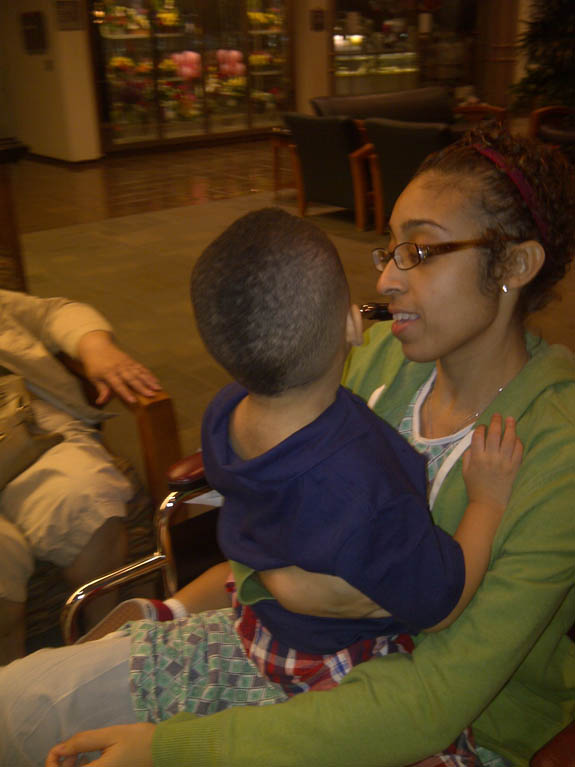I’ve been incredibly hesitant about writing the following post, considering the racial temperature of the United States, whenever a person of color makes a reference to the egregious situations that plague American citizens of color and of faiths other than Christianity, they are lambasted. We are often accused of being dramatic, starting trouble, race-baiting or pulling the “race card.” If I ever tweet or share something that has to do with black women or patients, someone will feel the need to tell me that I’m being ostracizing in my advocacy. I have even been accused of being racist by some readers.
Here’s the thing… I am a black American woman. This is who I am. My ancestry has much to do with who I am, how I believe, how I perceive and essentially how I am treated by others. A fact of living in America as a person of color with mixed heritage, is living with the possibility of facing systemic racism and discrimination at some point in your life. It’s an unfortunate reality. If we truly believe in equality for all, we must recognize that some people are facing real obstacles. Stemming from embedded stereotypes based on the color of their skin, their religion, their gender, or their sexuality.
As an advocate, I feel it’s important to speak my own truth, be transparent and only speak on things I am knowledgeable about. There are three things I will always be. I will always be a mom. I will always be an inflammatory bowel disease (IBD) patient. I will always be black. These are three things that I am proud to be and that I am an expert in as I live through them every day. I share my experiences to help others in the same predicament to navigate through their own life with some of the challenges that come with living as a mother of color with a chronic condition. But that doesn’t mean that a person who isn’t a mother of color with a chronic condition can’t relate to my story, my suggestions, or my advocacy work. That’s the beauty of being human and all of us being different. We find the beauty in our differences, while looking beyond them to find similarities. Know that no matter who you are, I am fighting for you. With that being said, it’s important for me to write this about the state of black minorities, specifically women of color, in healthcare.
Over the past few years we have found more and more advocates shedding light on the plight of the African American woman treating a serious medical condition in the healthcare system or being a caregiver for a child with a serious medical condition. Groups like Moms in Color, LOOM and Black Breastfeeding Week have worked on creating comfortable community events and resources for moms of color to commune, advocate for themselves, and find resources to empower their motherhood journey. These groups work diligently to fight against the myths that black mothers don’t baby wear, believe in healthy living, breastfeed, or cloth diaper. Even though the history of our motherhood in the United States has been as mothers to not only our own children, but to those of our masters and employers.
The disparity of black women’s health was highlighted by tennis goddess, Serena Williams, on her traumatic birth experience and how her celebrity and influence helped expedite the care she received. Serena revealed that she still had to fight to be heard when it came to receiving treatment…an experience echoed by many women and women of color across the United States.
The panic and anger she felt as she fought to be heard reminded me of a situation with a certain ER doctor during my own hospital visits. Every time he saw me, he’d tell me I was suffering from appendicitis and refused to believe I no longer had an appendix. He even went so far as to abrasively raise my shirt pointing to my surgery scar while asking, “What pouch? I don’t see a pouch!” When I told him it was internal, he rolled his eyes. He had already decided what kind of patient I was because I was too knowledgeable about my treatment plan. He never called my surgeon and he labeled me “drug seeking.” I live my medical treatment life walking a thin line of knowing enough to graduate medical school, to catch bad care, and playing ignorant so that I am not labeled drug seeking or dramatic.
But my problems are first world problems. What about the women of color in poorer areas who don’t have the option to visit a state of the art hospital? What about those who aren’t as well versed in their condition? What is happening to these women? “According to the Centers for Disease Control and Prevention, black women in the United States are over three times more likely to die from pregnancy or childbirth-related causes. But this is not just a challenge in the United States. Around the world, thousands of women struggle to give birth in the poorest countries. When they have complications like mine, there are often no drugs, health facilities or doctors to save them. If they don’t want to give birth at home, they have to travel great distances at the height of pregnancy. Before they even bring a new life into this world, the cards are already stacked against them,” Stated in Serena’s interview with Vogue Magazine. Her frustrations lifted off the page and resounded heavily within my soul. I related to her story deeply which made me feel both validated and sad. Serena and I had found solidarity through our discrimination.
As a mother and a patient living with IBD, I can say that the experience of having to convince the treating doctor or nurses that I am more than a dramatic, drug seeking, illogical, simple-minded woman, is a task that no one should have to deal with while fighting pain and disease. You go to the hospital to seek treatment for your condition, not an uphill battle. But these are stereotypes that have plagued the black community for the centuries that we have been living on American soil. These stereotypes have been engrained and come subconsciously. This idea that we as a people don’t eat healthy, live healthy lifestyles, or like having healthcare is just flat out wrong.
Healthcare and access to food has not always been readily available to black communities. Starting at slavery, to the post-Obamacare age. The fact of the matter is, the access is not always there as far as health education, organically grown fruits and vegetables, and access to specialty healthcare providers. So, the African American community has learned to rely on themselves. For centuries community churches and centers hosted farmers markets, food banks and community gardens. Midwives passed down methods to their own children because mothers were not receiving proper prenatal healthcare. And although being able to depend solely on your community sounds beautiful, having that as your only option in one of the most powerful countries in the world is disappointing. This type of disparity shouldn’t be happening in a country as powerful and beautifully diverse as ours. Patients overall are treated as second class citizens in this country, which is appalling. But we take it one step further with patients of color.
Along with many other topics, April was Minority Health Awareness Month. You’re reading that and giving me the look like, “Girl, whatchu talkin’?!” You had no idea such a thing existed. I know. Neither did I. Until 2 weeks before April 1st. Unfortunately, it wasn’t widely reported or advocated for. Non-profits representing patients of color with chronic conditions didn’t put forth a lot of effort in highlighting those patient stories. This was deeply troubling to me. My diseases are not stereotypically associated with people of color, but I am here living and surviving with these conditions. Being ignored and the idea of not being represented is like a kick in the teeth. But knowing that the lack of representation is leading to misdiagnosis, improper care, and death, is something I cannot live with.
So at the risk of playing this mythical race card I write this to let you know that we have got to do something! What can we do? Speak up. Don’t be afraid to tell YOUR health story. Don’t be afraid to tell YOUR motherhood story. The more we share, the more people are aware of symptoms, resources and tools. Education is power. And we are the only ones who can absolutely turn the tide on the systemic racism that plagues our country and its citizens. Use the resources you have. I use media connections, my religious community, my mom community, and my mother’s platform to share my story and the resources I know are available for those in similar situations. We all have power to make change in our own way. Find your power and use it.
IBD Advocates Shawn Bethea of Chronically Strong & Brooke Abbott of Crazy Creole Mommy Chronicles share their experiences of healthcare while living as black female patients in America on the AboutIBD Podcast with Amber J. Tresca.



